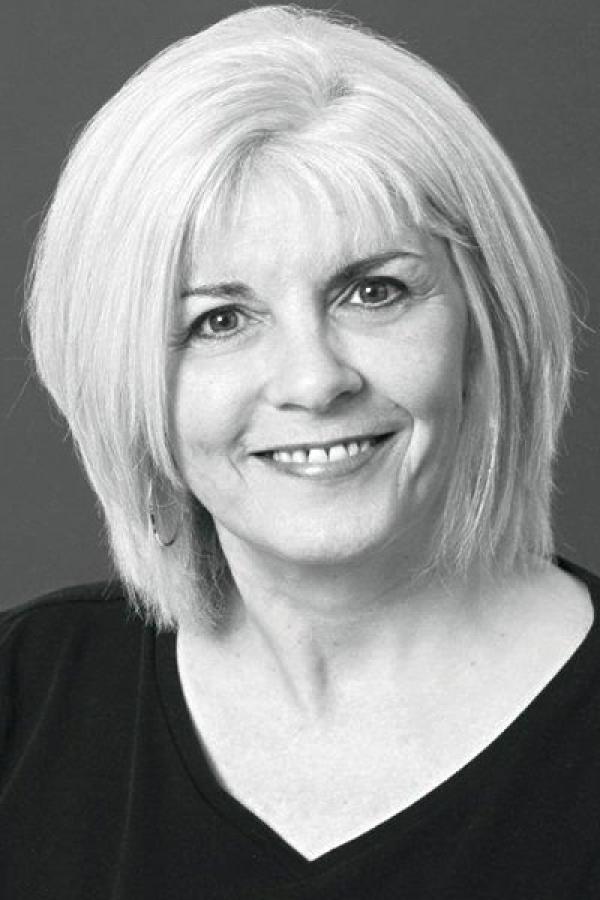Daneen Wardrop

Photo by Mary Whalen
Bio
Daneen Wardrop is the author of a book of poems, The Odds of Being (Silverfish Review Press, 2008), and has received the Gerald Cable Book Award, the Poetry Society of America Robert H. Winner Award, and the Seattle Review Bentley Prize for Poetry. Her poems have appeared in Kenyon Review, Michigan Quarterly Review, Gulf Coast, North American Review, Virginia Quarterly Review, and elsewhere. She also has authored three books of literary criticism including, most recently, Emily Dickinson and the Labor of Clothing (University Press of New England, 2009). Wardrop grew up in a military family, moving about once a year throughout childhood. A professor at Western Michigan University, she teaches American literature.
Author's Statement
The NEA Poetry Fellowship allows me the opportunity to continue working on a book manuscript with the in-progress title of Cyclorama named after the theater-sized, in-the-round oil paintings popular after the Civil War. While a plethora of literature about the Civil War exists, relatively little of it has been expressed in poetry, even though poetry with its fragmented nature is an apt genre to convey rupture. The manuscript consists of different voices from demographics often overlooked, such as those of nurses, slaves, draftees, immigrants, and women soldiers.
The fellowship offers me the encouragement and the blessed time to explore voice in the nineteenth century, to respond to people, real and imagined, whose experience I feel inspired, in a Whitmanian kind of ethos, to articulate. I am filled with gratitude.
Sarah Emma Edmonds, Memoirs, 1861-1865
See me now: I'm a contraband boy in the rebel camp. My paint rubs off my hands, and one of the other negros says, “I'll be darned if that feller ain't turnin' white." I add more silver nitrate.
I write down the position of fourteen ten-inch mortars, and seven eight-inch siege howitzers, tuck the paper in the inner sole of my shoe. On picket duty I step into the darkness and step again, one more time, and I'm gliding through forest back to the Union side.
See me now: I'm an Irish peddler woman, I practice a brogue. In between the picket lines I find an abandoned house.
Inside the house there's red ink that I use to line my eyes, mustard that I make into a plaster for blistering my face, and pepper I sprinkle in a handkerchief. I can cry on caprice. I pull out earthenware, clothing, quilts, add them to my wares. In the reb camp I spot a salesman I've seen before, loitering behind the Union lines selling newspapers. He's talking about Yankee fortifications, doesn't notice me.
I'm a nurse--quick, remember--man or woman this time?
I'm a nurse and I hold the one hand a soldier has left. He shifts toward death's all-shifting.
Pull back the tent flap.
Inside, a warmth from the bedroll swells toward you, thin smell of bread, sweat. The tent flap in hand, you feel its grain?
Last year in Washington, McClellan and the others interviewed me, a Canadian, to determine my patriotism. A phrenology test confirmed large bumps of secretiveness and adventure-love. I was hired.
I write with ink the color of skin.
I write on paper the color of skin. See me now.
Paint rubs off my face--which tint?
Back on the Union side I spot him again--the newspaper salesman, in our camp, detestable spy. I finger him.
I pass back and forth each side of the line, as a hand in a coat sleeve.
That half-mile between Yank and Reb lines, I live there, search for left biscuits, butter, and tea, once a whole pie still warm. I eat with one leg crossed over the other.
See me now, but really you don't. You put on your coat and each time I've served dinner to Reb officers, sweating under black makeup. Straighten the seam at your elbow.
Who was it held a thumb to stop a spurting artery for three hours while the soldier put his affairs in order, finally had to undo the thumb, and he died in three minutes?
If the cuff chafes your wristbone I've found a soldier leaning against a tree, clear-eyed, ready to die, who recognized me and I her, for women, and she asked me to bury her and keep her cover, and I did.
See me now. The wig tilts. The voice cracks. I don't doubt doubt, I ride across the line of it.
I don't seem to be what I am, and the seeming is your weight.
(First published in Michigan Quarterly Review)

